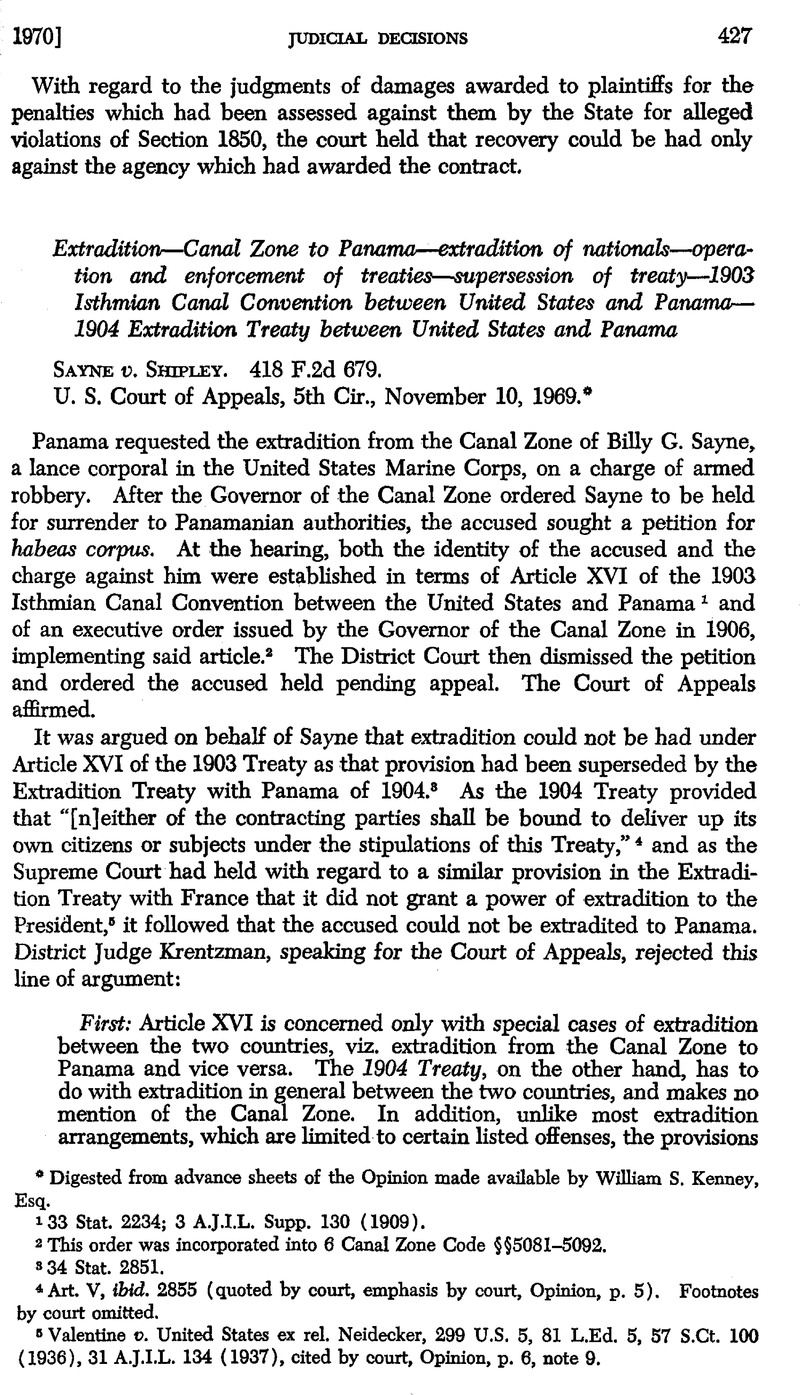No CrossRef data available.
Published online by Cambridge University Press: 28 March 2017

* Digested from advance sheets of the Opinion made available by William S. Kenney, Esq.
1 33 Stat. 2234; 3 A.J.I.L. Supp. 130 (1909).
2 This order was incorporated into 6 Canal Zone Code §§5081-5092.
3 34 Stat. 2851.
4 Art. V, ibid.2855 (quoted by court, emphasis by court, Opinion, p. 5). Footnotes by court omitted.
5 Valentine v.United States ex rel. Neidecker, 299 U.S. 5, 81 L.Ed. 5, 57 S.Ct. 100 (1936), 31 A.J.I.L. 134 (1937), cited by court, Opinion, p. 6, note 9.
6 Opinion, pp. 6-9.
7 18 U.S.C. §3184 provides: “Whenever there is a treaty or convention for extradition between the United States and any foreign government, any justice or judge of the United States, or any magistrate authorized so to do by a court of the United States, or any judge of a court of record of general jurisdiction of any State, may, upon complaint made under oath, charging any person found within his jurisdiction, with having committed within the jurisdiction of any such foreign government any of the crimes provided for by such treaty or convention, issue his warrant for the apprehension of the person so charged, that he may be brought before such justice, judge, or magistrate, to the end that the evidence of criminality may be heard and considered. If, on such hearing, he deems the evidence sufficient to sustain the charge under the provisions of the proper treaty or convention, he shall certify the same, together with a copy of all the testimony taken before him, to the Secretary of State, that a warrant may issue upon the requisition of the proper authorities of such foreign government, for the surrender of such person, according to the stipulations of the treaty or convention; and he shall issue his warrant for the commitment of the person so charged to the proper jail, there to remain until such surrender shall be made.” (Quoted by court, pp. 10-11.)
8 Opinion, pp. 11, 14-15.